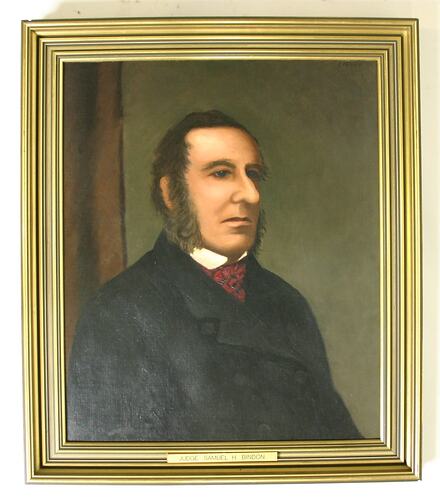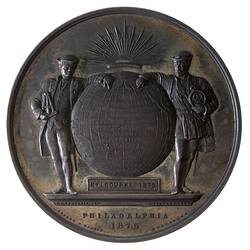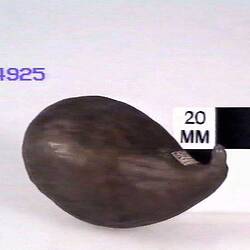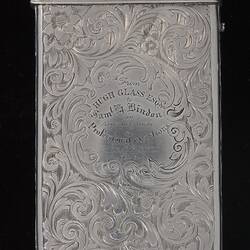The Honorable Samuel Henry Bindon was born in Limerick, Ireland, in 1812. He graduated in law from Trinity College, Dublin, and married Susannah Massy. They had one son, also called Massy. The family property he expected to inherit was alienated from him in the Encumbered Estates Courts during the Irish famine. Bindon was particularly interested in Irish tradition, and in the 1840s publicly adopted the Irish nationalist cause. He was a strong advocate of Irish industrial independence. By 1850 he became secretary of the council of the Irish Tenants' League, but political in-fighting marred his plans, and he decided to emigrate.
Bindon arrived in Victoria in 1855 and began to practise law in county courts. In 1864, at the age of 52, he was elected to the Legislative Assembly for Castlemaine as an independent supporter of the moderate McCulloch ministry. He became Minister of Justice in 1866. Two years later, after McCulloch was briefly ousted, Bindon was not re-appointed. He was considered too independent-minded and radical. He passionately protected the under-privileged, attacking the 'upper' or 'wealthy' classes throughout his parliamentary career. He advocated higher government spending on welfare and education. He was a strong advocate of secular education. Bindon was convinced of the need to develop the agricultural and industrial wealth of the country. He succeeded in passing special grants for industrial exhibitions, which led to the Melbourne Exhibition of 1866. Arguably his greatest achievement was his appointment as chair of the technological commission of 1869, the first official organisation for technical education in the Australian colonies. He published Industrial Instruction in Europe and Australia in 1872.
Bindon resigned from parliament in 1868, but remained a trustee of the Public Library, Museum and National Gallery of Victoria, chair of the Industrial and Technological Museums Committee and as member of the Acclimatisation Society of Victoria. He was also a keen sportsman, naturalist and antiquarian.
In 1869, at the age of 57, he became judge of the County Court of Gippsland. He temporarily lost his position in the 'Black Wednesday' day of public servants' dismissals, but was re-appointed, this time as one of only three judges, to cover all county court duties for the colony. He was desparately overworked, and soon his health began to suffer. Amidst this, his contribution was recognized through a medal awarded at the 1875-76 Victorian Intercolonial & Philadelphia Centennial Exhibitions (NU 20753).
He died at St Kilda on 1 August 1879.
References:
David Potts, 'Bindon, Samuel Henry (1812-1879)', Australian Dictionary of Biography, National Centre of Biography, Australian National University, http://adb.anu.edu.au/biography/bindon-samuel-henry-2994/text4377, published first in hardcopy 1969.
More Information
-
Keywords
-
Localities
-
Authors
-
Article types



